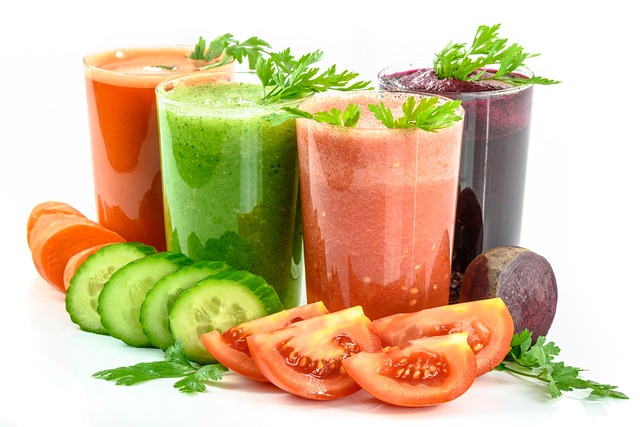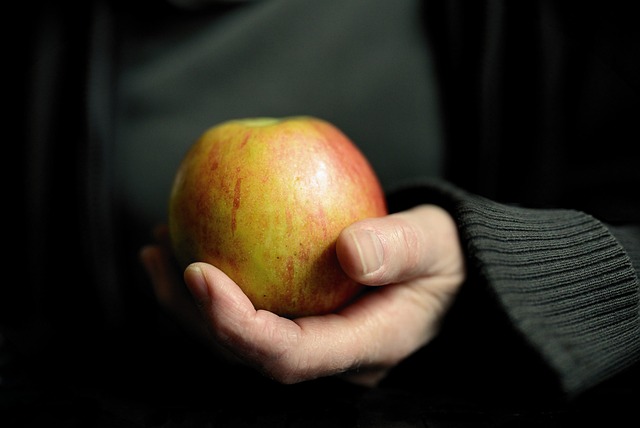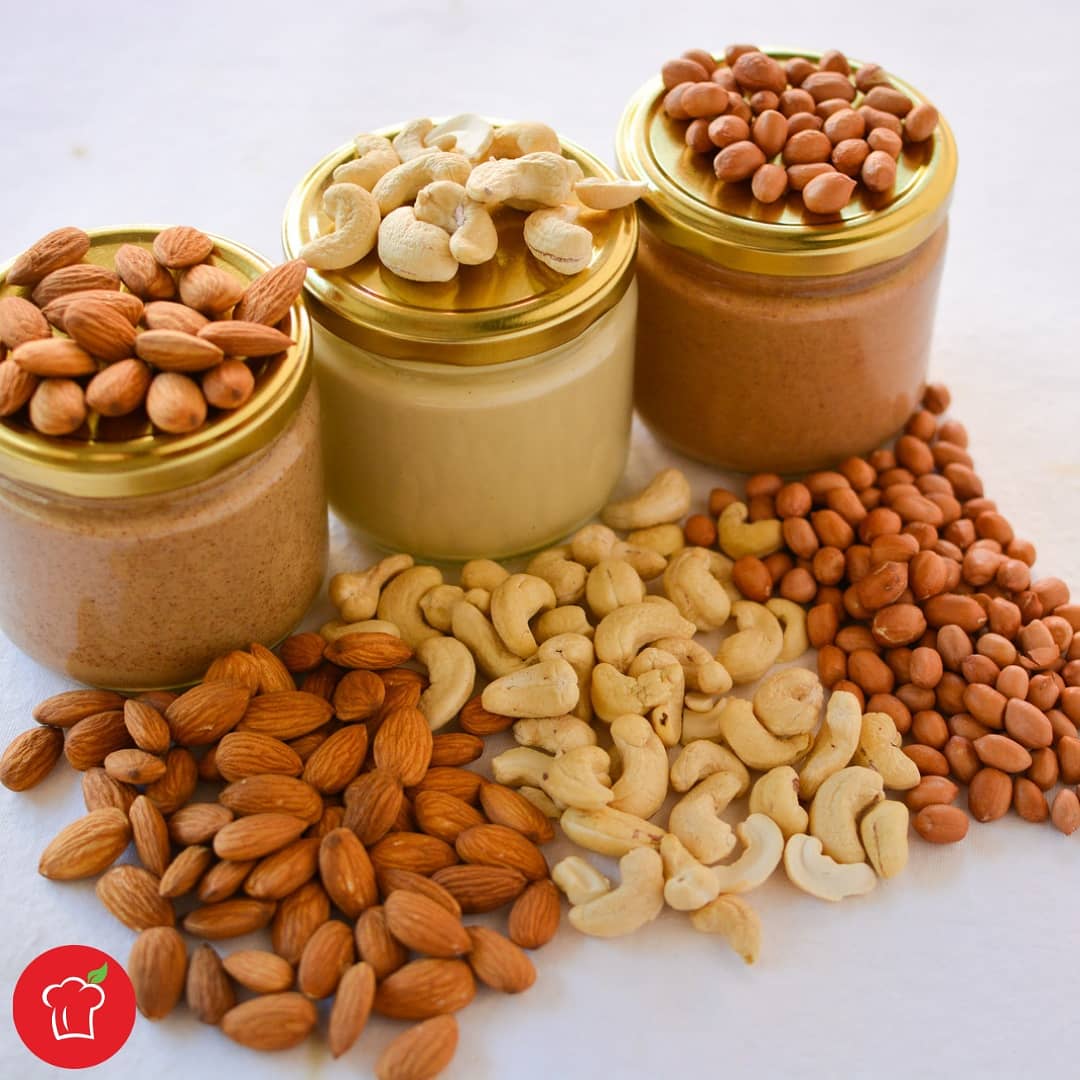Top 10 Vitamin A Foods And How You Can Maximise Benefits From Them Today
Vitamin A is an essential nutrient that plays a critical role in supporting healthy vision, reproduction and immune system functioning. In this article, we will describe top 10 vitamin A foods:
- Pumpkin
- Carrots
- Sweet potatoes
- Red Capsicum
- Spinach
- Kale
- Apricots
- Mango
- Watermelon
- Papaya
and discuss how you can maximise benefits from them today.
According to the National Institutes of Health, Vitamin A deficiency is more prevalent that we imagine.
Up to 20% of adults don't consume enough vitamin A through their diet, according to recent study published by CM Vellore in the Indian Journal of Community Medicine, making this an important deficiency to address.
Plant-based foods are excellent sources for many vitamins and minerals; here we discuss ten top vitamin A rich plant-based food choices along with ways you can maximize your nutrient intake from them.
Vitamin A has four main forms:
- Retinol
- Retinal, also known as retinaldehyde
- Retinoic acid
- Multiple provitamin A carotenoids - the most well known is beta-carotene or β-carotene
Retinol comes from animal products such as dairy and eggs, while carotenoids come mainly from plants including fruits, vegetables and nuts/seeds.
Carotenoids include several compounds, such as:
- Alpha-carotene
- Beta-carotene (the most well known form)
- Lycopene
- Lutein
- Astaxanthin
- Cryptoxanthin
- Zeaxanthin
Our bodies convert these into active forms of vitamin A (retinol).
Beta-carotene is found in yellow or orange coloured produce like mango and carrots as well as leafy greens like spinach and kale.
Eating a variety of different colourful fruits and vegetables can help ensure optimal intakes of all micronutrients needed for good health - this includes getting enough vitamin A which helps maintain strong immunity status by aiding production of white blood cells called lymphocytes, support reproductive health by regulating hormones involved in fertility plus maintaining ocular health via its antioxidant properties protecting against free radical damage within the eyes.
What Is Vitamin A?
Vitamin A is a micronutrient that can be found in two forms: provitamin A carotenoidsand preformed vitamin A.
Because each of these forms have different levels of physiological activity as Vitamin A, we have a system called retinol activity equivalents (RAEs).
Different number of RAEs are assigned to each form of Vitamin A and carotenoids to help you understand if you are consuming enough daily Vitamin A to meet your nutritional needs.
Provitamin A carotenoids, such as beta-carotene, need to be converted by the body into usable form. P
Preformed vitamin A is found in animal sources such as eggs, dairy products, meat, oily fish and fortified foods like cereals.
Vitamin A has many benefits for our health; it helps to maintain healthy vision and immune system functioning, and may protect against certain types of cancer, such as:
- Breast cancer
- Cervical cancer
- Skin cancer
- Prostate cancer
- Oral cancer
- Leukemia
It’s important to get enough vitamin A from food sources or dietary supplements because deficiencies can cause night blindness and xerophthalmia.
To maximise its beneficial effects on your health, it's best to consume an excellent source of this vital nutrient through leafy greens, fruits and vegetables containing both forms of vitamin A.
Here are the top ten vitamin A rich foods that will give you maximum benefit: pumpkin, carrots, sweet potatoes, red capsicum or red bell pepper, spinach, kale, apricots, mango watermelon, papaya.
Overview Of Vitamin A Benefits
Vitamin A is a group of fat-soluble compounds essential for many bodily functions.
It can be likened to the fuel that powers our bodies, allowing us to stay energised and healthy.
As such, it's important to understand its benefits and how we can maximise them through dietary vitamin A intake and prevent both acute vitamin A deficiency and chronic vitamin A deficiency.
Vitamin A plays an important role in skin health, protecting against dryness and improving hydration levels.
This nutrient also helps maintain night vision by promoting the formation of rhodopsin – a pigment which absorbs light in dark conditions.
Our immune system relies on adequate vitamin A intake too; studies have shown this vitamin supports cell growth and differentiation, critical components of immunity.
Moreover, research suggests that those with higher intakes of this nutrient are less likely to contract certain illnesses or infections.
Given these numerous advantages, it's clear why incorporating foods rich in vitamin A into our diets can make all the difference when it comes to overall wellness.
To take full advantage of its properties and optimise health outcomes, let's explore some top sources of this powerful essential nutrient.
Best Sources Of Vitamin A
Vitamin A is a vital nutrient for the human body.
It plays an important role in vision, immune system functioning and reproduction.
The most concentrated sources of vitamin A are mainly animal products such as beef liver, cod liver oil and eggs. However, these foods may increase risk of other diseases like depression, heart disease and cancer.
For this reason, the best sources of Vitamin A may be whole plant foods including leafy green vegetables like spinach, kale and collards; yellow fruits such as mangoes, cantaloupe and papaya; and yellow and orange vegetables like orange squash and yams, red peppers. All these are excellent sources of this essential nutrient.
It is possible to maximize the benefits from Vitamin A-rich food by consuming them with foods rich in other fat-soluble vitamins (such as D or E) along with nuts and seeds that will help absorb more of the nutrients into your bloodstream.
Also, it is recommended to cook some types of vegetable instead of eating them raw since cooking breaks down cell walls which makes it easier for our bodies to assimilate the nutrients contained within them.
Eating a variety of different foods containing Vitamin A ensures that you can get the most out of this amazing micronutrient!
How Much Vitamin A Should You Consume Per Day?
Vitamin A is an essential vitamin that plays a crucial role in our health and wellbeing. It's important to ensure we get enough of it, but how much should you consume? To answer this question, let's dive into the world of Vitamin A!
There are two types of vitamin A: preformed vitamin A (found in animal foods) and provitamin A carotenoids (plant-based sources).
The daily intake (Recommeded Daily Allowance or RDA) for adults aged 19 years or older as per the FSSAI, Govt of India, is:
- 840 micrograms (mcg) for women
- 900 mcg for pregnant women
- 950 mcg for lactating women
- 1,000 mcg for men
And here are the RDA for children:
- Infants aged up to 1 years: 350 mcg
- Children aged 1 to 9 years: 390 mcg to 630 mcg, increasing with age
- Children aged 10 to 18 years: 700 mcg to 1,000 mcg, increasing with age
Foods rich in vitamin A include sweet potatoes, carrots, spinach, kale, cantaloupe melon, apricots.
While some food items have higher concentrations of the nutrient than others, all these foods can help you meet your daily requirement when consumed regularly.
In addition to natural sources of vitamin A like fruits and vegetables - fortified foods such as cereals provide another way to get adequate amounts without consuming high doses from supplements.
TIP: Aim for at least 5 servings of fruit & veggies per day – especially those with bright colours like oranges & greens – to ensure you’re getting enough Vitamin A!
Top 10 Vitamin A Foods
Vitamin A is a vital nutrient for the human body, and it can be found in various food sources.
It plays an important role in maintaining healthy vision, skin, teeth, bones, and organs.
To maximize the health benefits of Vitamin A, it’s recommended to maintain daily dietary allowance levels within 30% - 100%.
Here are the top 10 vitamin A foods that will help you reach your daily needs.
The below list includes some amazing sources that guarantee adequate intake levels while preventing deficiency diseases caused by lack of this essential nutrient.
Pumpkin
Pumpkin is a delicious, nutrient-rich vegetable that is an excellent source of Vitamin A. It contains over 50% of the recommended daily intake in just one cup!
Pumpkins are packed with beta-carotene and other carotenoids which are converted to Vitamin A in the body.
Pumpkin can be enjoyed cooked or raw and makes for a great addition to soups, salads, or even smoothies. Try some pumpkin pie if you're feeling fancy!
Sweet Potatoes
Investigating the truth that sweet potatoes are among the top 10 sources of vitamin A, one discovers a trove of knowledge.
Sweet potatoes are an excellent source of Vitamin A in the form of retinoic acid.
An average baked sweet potato with skin provides 438 mcg or 1/3rd of our recommended daily intake (RDI) for adults and children alike.
Moreover, research confirms that consuming more amounts of Vitamin A can be beneficial to overall health.
There is no denying that sweet potatoes offer great benefits for human health due to its high content of Vitamin A.
However, this is primarily true for orange sweet potatoes - its rich orange colour indicates beta-carotene - which is converted into Retinol by the body, thus providing us with adequate forms of Vitamin A.
In addition to being a powerhouse nutrient, studies further confirm that consuming sweet potatoes helps improve eye sight, strengthens bones and supports cell growth, reproduction and immune functions as well.
Carrots
Carrots are so much more than just a tasty and crunchy snack.
Packed with powerful carotenoids, carrots provide an impressive list of health benefits due to their active form of vitamin A.
This makes them one of the best sources out there for improving eye health, reproductive health, skin health and even cancer prevention.
Not only can eating carrots help to improve these areas, but they also offer incredible nutritional value that make it possible to maximize their benefits.
Carrots contain plenty of beta-carotene which is converted into retinol in the human body, providing vitamin A activity where it's needed most.
Furthermore, carrots are full of other essential vitamins such as potassium, magnesium and phosphorus along with dietary fibre and antioxidants like lutein and zeaxanthin that enhance our overall wellbeing.
Kale
Kale is a powerhouse vegetable, packing an abundance of vitamin A and other fat soluble vitamins.
Its deep green leaves are brimming with nutritional benefits that can help people maximize their overall health.
With its distinct flavor and crunchy texture, it's no wonder why kale has become such a popular addition to plant-based diets.
Thanks to the abundant Vitamin A found in kale, this leafy vegetable provides essential nutrients for healthy vision, immune function and skin repair.
This form of vitamin A helps support cellular production which leads to better absorption of fatty acids and minerals.
Eating plenty of kale also allows for more efficient removal of toxins from the body as well as providing antioxidant protection against oxidative stress damage due to aging or environmental exposure.
Kale’s high levels of dietary fiber makes it a great choice for optimizing digestion while promoting regularity and satiety throughout the day.
Whether you enjoy kale raw in salads or cooked up into a warm bowl of sautéed greens, adding this delicious veggie to your plate can deliver huge rewards when it comes to getting your daily dose of Vitamin A!
Spinach
Known for its mild, earthy flavor and deep green color, spinach is an excellent source of vitamin A and other carotenoids.
It stands in stark contrast to kale which also contains high levels of vitamin A but has a much stronger taste that many people find off-putting.
Spinach provides many key benefits when it comes to health; from fetal growth support during pregnancy to immune system regulation and prevention of blindness caused by Vitamin A deficiency.
Its antioxidant properties help protect against free radical damage while supporting healthy vision, skin integrity and proper cell communication signals throughout the body.
Additionally, studies have shown that consuming spinach helps with cognitive function as well as reducing inflammation associated with age related diseases like Alzheimer's disease.
The combination of these powerful phytochemicals makes it essential for optimal health outcomes at all stages of life.
Spinach is especially useful for at-risk populations. For example, there is an increased risk of cancer in smokers, and spinach may help them reduce risk (while quitting smoking too).
Apricots
Apricots are a nutrient-rich food, and one of the top 10 vitamin A foods.
Eating apricots can provide an excellent dose of vitamin A as they’re packed with beta carotene - an antioxidant that is converted into active forms of vitamin A in the body.
One cup (145 grams) of sliced apricots provides over 18% of your daily need for Vitamin A – this equates to around 158 micrograms of Vitamin A.
To maximize benefits from eating apricots, it's important to pair them with healthy sources of fat like coconut, almonds or avocados as these will help your body absorb more Vitamin A.
Furthermore, adding some freshly ground black pepper may also help improve absorption.
Enjoying fresh organic apricots on their own makes a great snack - much better than supplementation with vitamins through tablets!
You could alternatively incorporate them into salads or smoothies to mix up flavors and get additional nutrients at the same time!
Papaya
Are you looking to get the most out of vitamin A-rich foods? Papaya is a great choice!
This sweet and nutritious fruit is packed with essential vitamins, fatty acids, and antioxidants that can help your body reach its optimal health.
Here are three ways papaya stands apart from other Vitamin A sources:
- It's rich in Vitamin A precursors like beta carotene which helps support cell growth.
- The omega-3 fatty acids found in papayas reduce oxidative stress and promote healthier skin cells.
- Papayas also contain lycopene which has been linked to better heart health.
These properties make papaya an excellent source of vitamin A for any diet – vegan or otherwise!
As part of a balanced plant-based diet, this delicious tropical fruit provides plenty of benefits for overall wellbeing.
To maximize the nutritional value of papaya, be sure to choose ripe fruits and eat it fresh whenever possible - adding slices to salads, smoothies, plant-based yogurt bowls or eating them on their own as snacks.
With its powerful antioxidant and anti-inflammatory properties, including papaya in your daily meals will ensure you’re getting all the nutrients you need while keeping your taste buds happy too!
Transitioning into Cantaloupe....
Cantaloupe or Musk Melon
Cantaloupe is a delicious, sweet melon that can be eaten raw or added to salads.
It’s an excellent source of Vitamin A, with one cup providing approximately 30% of the recommended daily intake for adults.
Vitamin A helps maintain healthy eyesight and skin, supports the immune system by increasing white blood cells, and reduces the risk of vitamin deficiency-related illnesses.
Additionally, cantaloupe or musk melon has other health benefits such as being a good source of antioxidants and containing minerals like potassium and magnesium. Eating cantaloupe may help protect against cancer and heart disease.
For those looking to maximize their intake of Vitamin A from cantaloupe, it’s best to consume fresh fruit rather than canned products due to potential nutrient loss during processing.
So before considering vitamin supplements, try adding cantaloupe to your daily diet to ensure sufficient amounts are consumed on a regular basis.
Red Peppers or Capsicum
Red peppers provide a vivid contrast your delicious salads, and also to your health. It is one of the best sources of dietary sources of vitamin A.
Plant-based physicians recommend embracing red peppers because they are an excellent source of this essential nutrient.
Capsicum has an abundance of alpha-tocopherols — which are beneficial for normal vision, cystic fibrosis, and maintaining healthy blood levels.
Here are four ways you can maximize these nutritional advantages:
- Add them to salads: Adding them to salads helps bring out the sweetness and flavor that makes eating red peppers so enjoyable.
- Sautee them with onions or garlic: This adds an extra layer of savory goodness that pairs well with most meals.
- Add them to gravies, soups or stews: Red peppers add a pop of color as well as nutritious vitamins and minerals to any dish they’re added to.
- Blend them into smoothies: If you don’t like the taste of raw red peppers, try blending them up into a delicious smoothie! Adding some fruit will help offset the slight bitter taste while adding more nutrients to your drink.
With all these options available, it's easy to incorporate more red pepper into your diet without sacrificing flavor or nutrition!
Why We Don't Recommend Egg Yolks & Other Animal Foods
When it comes to the best sources of Vitamin A, animal-based foods such as egg yolks and animal liver products are often cited.
While some research suggests that these sources may provide a greater concentration of vitamin A compared to plant-derived sources, there is also evidence suggesting that consuming excessive amounts of these foods can lead to negative health outcomes.
Although these have high levels of vitamin A, animal-based food sources have been linked with increased risk for certain types of heart disease, while studies suggest an upper limit on intake when it comes to maintaining optimal immune system function.
It is important not to overlook other ways we can achieve adequate levels of Vitamin A without relying on animal-based foods.
Plant-derived Vitamin A precursors like beta carotene are generally considered safe and effective alternatives for gaining sufficient micronutrients.
These plant based options sometimes offer lower concentrations than their animal counterparts but don’t carry the same risks associated with overconsumption.
By focusing on plant based dietary choices, individuals can ensure they get enough Vitamin A without putting themselves at risk for potential adverse side effects from excess consumption
How To Maximise Benefits From Vitamin A Foods
Vitamin A is a powerful nutrient that can be beneficial for our health in numerous ways.
It's like unlocking the toolkit of bodily functions, providing us with the tools we need to stay healthy and feel energised.
To maximise its benefits, it's important to include vitamin A-rich foods in the human diet everyday.
Here are some tips on how best to do this:
- Visual representations aside, let’s dive deeper into some specific foods high in Vitamin A. Black eyed peas are packed with carotenoids which convert into Vitamin A when ingested by pregnant women or those who have difficulty absorbing fat-soluble vitamins from other sources.
- Fresh pumpkin and canned pumpkin both contain beta carotene – another form of Vitamin A – making them ideal additions to any meal plan looking to boost their intake of this essential nutrient.
-
In addition to consuming foods with high levels of vitamin A, you can also increase your body's absorption of this nutrient by pairing it with nuts and seeds. This is because Vitamin A is fat-soluble, which means that it needs fat in order to be absorbed and utilized by the body.
Incorporating these key food groups will help ensure you're providing your body with all the nutritional advantages offered by Vitamin A while also avoiding unnecessary animal products such as egg yolks which can result in overconsumption of saturated fats and cholesterol.
By adding black eyed peas, mango, carrot, spinach and pumpkin into meals throughout the week, one can expect improved immune system functioning, better vision, enhanced cell growth and differentiation along with healthier skin and hair, and lower risk of diseases such as inflammatory bowel disease, vision loss, and even high blood pressure and elevated blood sugar levels.
Frequently Asked Questions
Are There Any Side Effects From Consuming Too Much Vitamin A?
An adage that is particularly relevant when discussing the potential side effects of consuming too much vitamin A is “moderation in all things”.
This statement provides insight into why evaluating the risks and rewards of consuming large amounts of this essential nutrient should be taken seriously.
As a plant-based physician, it is important to understand how one can maximise benefits from Vitamin A while avoiding excessive intake that may lead to negative health outcomes.
Vitamin A plays an integral role in supporting healthy vision, reproduction, cell division and communication between cells.
It also helps maintain innate immunity by promoting mucous production, which serves as a barrier against infection and disease.
However, overconsumption can result in vitamin toxicity resulting in symptoms such as blurred vision, joint pain, headaches and nausea; more severe cases can even cause liver damage or failure.
Carotenoid rich food sources such as carrots, sweet potatoes and spinach are considered safeer because they contain provitamin A which has minimal to no toxic effects even at higher doses, because the fiber content prevents you from overconsumption.
In order to obtain optimum benefits from these foods without risk of toxicity, combining them with fats like nuts or avocado will improve absorption rates of this nutrient content up to 4x greater than normal enabling maximum benefit from each meal prepared.
The importance of understanding not only what types of food one consumes but also how they consume them cannot be underestimated when striving towards optimal health through natural means. By following moderation principles combined with mindful eating practices that ensure proper absorption rate increases within the body one can enjoy long lasting health benefits derived from Vitamin A without risking its adverse effects on well being.
What Other Food Sources Are Rich In Vitamin A?
Vitamin A is an essential nutrient that plays a key role in maintaining good vision, healthy skin and a strong immune system.
It can be found in many food sources ranging from animal products to plant-based foods like carrots, sweet potatoes and pumpkin. This article explores what other food sources are rich in this important vitamin.
The richest sources of Vitamin A may be pumpkins and dark green leafy vegetables such as spinach and kale.
These contain high amounts of beta carotene which the body then converts into active form Vitamin A when needed.
Other fruits and vegetables including tomatoes, cantaloupe, apricots, mangoes, papaya and bell peppers are also excellent sources of Vitamin A while broccoli contains lutein that helps promote eye health.
To maximize benefits from these food sources it is important to choose fresh produce; opt for organic varieties whenever possible; steam or lightly cook your vegetables instead of boiling them; add some fat to meals (e.g., peanut butter and almond butter) which will help you absorb more nutrients from the food itself; combine different types of foods together e.g., grain+legume+vegetable dishes to increase variety in your diet; enjoy smaller portions throughout the day rather than one large meal at lunch or dinner time; last but not least remember moderation is key!
TIP: Experimenting with spicing up your meals with herbs and spices not only adds flavour but research shows they too possess a host of antioxidant properties that may help enhance absorption rates of vitamins like Vitamin A even further.
Are There Any Supplements That Contain Vitamin A?
Vitamin A is an essential nutrient for good health and its deficiency can lead to a number of serious conditions.
The best way to get your daily dose of Vitamin A is through food sources, but are there any supplements that contain this important vitamin?
The answer is yes - many multivitamin supplements do contain some form of Vitamin A. However, it’s important to note that the type of Vitamin A in these supplements may be different from those found in foods naturally rich in Vitamin A.
Here are the different forms of Vitamin A:
- Retinol – This fat-soluble vitamin is found in the human body as an active form helps maintain healthy skin, vision, bone growth and immune system function.
- Beta carotene – Found mostly in plant-based foods like sweet potatoes, carrots and spinach, beta carotene converts into retinol once ingested by the body.
- Preformed Vitamin A – Synthetic forms of preformed Vitamin A are often added to multivitamins or sold separately.
- Retinyl Palmitate – This form of Vitamin A is typically used in fortified foods such as dairy products, breakfast cereals and spreads since it has longer shelf life than other forms of Vitamin A.
When considering taking a supplement containing Vitamin A it's always best to first talk with your doctor or nutritionist who will help determine which type would be most beneficial for you based on your individual needs and health status.
Additionally, while supplementing with smaller amounts of synthetic forms can provide some benefits, eating a balanced diet full of fruits and vegetables high in natural forms (such as beta carotene) provides more complete nutritional value for overall health maintenance.
Does Vitamin A Interact With Any Medications?
When it comes to our health, vitamins are essential building blocks.
Vitamin A is no exception—it plays an important role in vision, growth and development, immune system support, and more.
But before we can maximize the benefits of vitamin A-rich foods, it’s important to understand how this vitamin interacts with other medications that you may be taking.
Research has shown that some drugs commonly used have been found to interact with vitamin A supplements. For example, the following drugs should be verified with a physician if you are taking Vitamin A supplements:
-
Warfarin
-
Neomycin
-
Orlistat
-
Mineral oil
Because of these potential interactions between medications and Vitamin A, individuals should consult their healthcare practitioner prior to supplementing with any form of additional Vitamin A either through supplementation, but increasing Vitamin A intake through diet should be safe.
This will ensure that they receive safe doses without compromising on effectiveness or causing any further negative side effects due to drug-nutrient interactions.
Healthcare practitioners can also provide guidance regarding food sources containing high concentrations of Vitamin A so patients can implement dietary changes when necessary and reap all its wonderful benefits!
Conclusion
Vitamin A is an essential nutrient for many bodily functions, and consuming the right foods can help you maximize its benefits.
Vitamin A helps support healthy vision, skin health, immune system function, and more.
Consuming too much of this vitamin can be detrimental to one’s health; however, by following a balanced diet rich in plant-based sources of Vitamin A, individuals can receive all the benefits of this important nutrient without damaging side effects.
There are many natural plant sources including sweet potatoes, carrots, spinach and kale that provide dietary sources of Vitamin A with no risk of overconsumption.
Finally, it is important to note that some medications interact negatively with high doses of Vitamin A so if you are taking any medication make sure to consult your physician before increasing your intake.
By being mindful about our diets we can ensure we get enough Vitamin A from safe and nutritious sources allowing us to reap all the wonderful benefits this vitamin has to offer.
Next Steps - Get Started Today
Looking to eat healthy? We can help. You can prevent, treat or better manage a lifestyle disease
- Book an online consultation with Dr. Achyuthan Eswar to understand more about specific lifestyle changes and how you can adopt them
- Subscribe to our 100% whole food plant based healthy meal plan, designed to help you get and stay healthy from the comfort of your home - Bengaluru only
- Stock up on delicious Whole Food Plant Based sweets and snacks that are sugar/jaggery-free, oil-free, maida-free and plant-based - Available Pan-India
- Learn more about a whole food plant based diet on NutritionScience.in and get started on your journey to a healthier tomorrow
- Sign up for our Plant Based Diet Masterclass on NutritionScience.in and take a deep dive into a whole food plant based diet and how it affects your health











